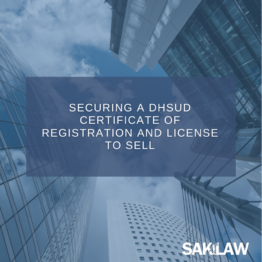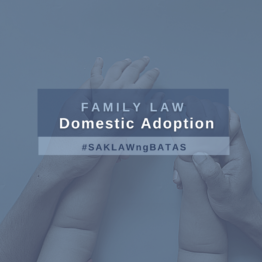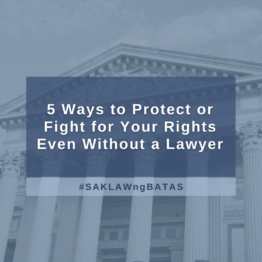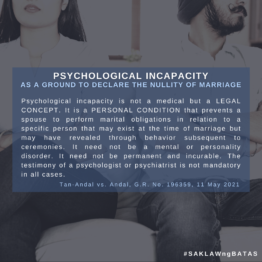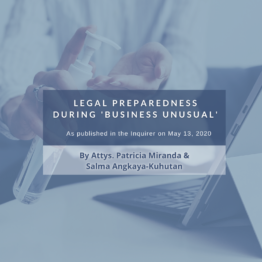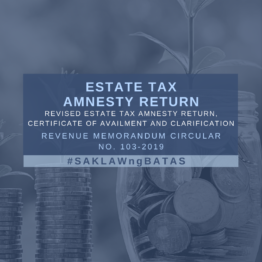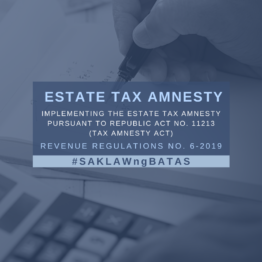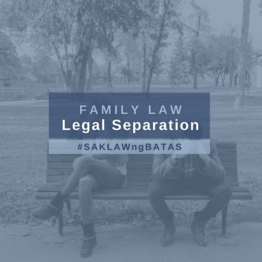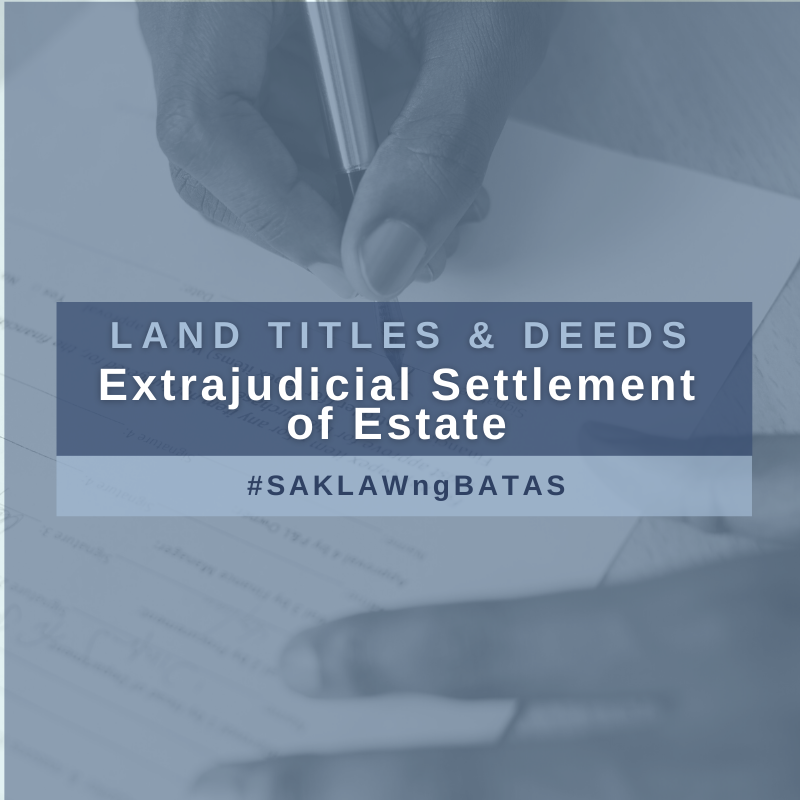
After a family member (the “Decedent,” for brevity) passes away, one of the common questions among the surviving family members is how to deal with the properties that the Decedent left behind. There may be real and personal properties registered under the name of the Decedent. Money deposited in the bank, stock certificates, club shares, and the proceeds of a life insurance policy are some examples of personal properties. All of these properties left behind form part of the “Estate” of the Decedent. After the creditors of the Decedent have been paid, whatever is left behind (the “Net Estate”) is inherited by the heirs.
Depending on the circumstances, the Estate of the Decedent may be settled extrajudicially, that is, outside of court. In this article, we discuss the circumstances when extrajudicial settlement may be done by the heirs, and how to go about the process.
What is an Extrajudicial Settlement of Estate and when may it be done?
Extrajudicial Settlement of Estate is a procedure for dividing the Estate of the Decedent among his heirs, without having to go to court. It may be done only if the following cirumstances are present:
- the decedent left no will
- the decedent has no debts or his debts have been fully paid;
- the heirs are all of legal age or the minors are duly represented by their judicial or legal representatives; and
- a public instrument is duly executed by the heirs and filed with the Register of Deeds (i.e, the “Deed of Extrajudicial Settlement of Estate.”
What should be Included in the Deed of Extrajudicial Settlement of Estate?
The Deed of Extrajudicial Settlement should state the following information:
- the fact that the Decedent left no will;
- the fact that the Decedent left no debt;
- each heir’s relationship to the Decedent (e.g. spouse, son, daughter, father, mother etc., specifying whether the relationship is legitimate or illegitimate);
- the fact that they are the decedent’s only surviving heirs;
- an enumeration and a brief description of the Decedent‘s properties, both real and personal, which the heirs are now dividing among themselves; and
- how the properties are to be divided among the heirs.
Since this is a legal document, it is always best to seek the assistance of an attorney during the drafting process, not only at the time when it will be notarized.
What are the other requirements apart from the Deed of Extrajudicial Settlement of Estate?
Other requirements to complete the process of Extrajudicial Settlement of Estate include the following:
- Secure a bond in an amount equivalent to the value of the personal property involved as certified to under oath by the parties concerned and conditioned upon the payment of any just claim by an heir or other person who has been unduly deprived of his lawful participation in the Estate of the Decedent
- Register the Deed of Extrajudicial Settlement of Estate with the Register of Deeds where the land is located, simultaneously filing the bond.
- Publish the Deed of Extrajudicial Settlement of Estate in a newspaper of general circulation once a week for three (3) consecutive weeks.
Please note that the bond must be obtained from a reputable bonding company acceptable to the Register of Deeds. Likewise, the newspaper of general circulation must be accredited by the Register of Deeds.
Please also note that estate taxes must be paid before filing the Deed of Extrajudicial Settlement with the Register of Deeds.
May an heir choose not to receive his or her share of the inheritance from the Decedent?
An heir may opt not to receive any share of the inheritance by executing a waiver renouncing or repudiating his or her share. This repudiation must be made in a public or authentic instrument. In practice, the repudiation or waiver is incorporated into the Deed of Extrajudicial Settlement of Estate.
The heir who repudiates his inheritance generally has no say in who receives the assets in his or her place. Once an heir designates a person who will receive his or her share in lieu of himself, such designation partakes of a donation and will be subject to donor’s tax.
May an heir be excluded from participating in the Estate of the Decedent other than by his or her voluntary repudiation of the inheritance?
No. No extrajudicial settlement shall be binding upon any person who has not participated therein or had no notice thereof. The exclusion of a compulsory heir will be a ground for the declaration of nullity of the Extrajudicial Settlement of Estate. In the 2018 case of Amparo S. Cruz, et al. vs. Angelito S. Cruz, et al., G,R. No. 211153, February 28, 2018, the Supreme Court held in no uncertain terms that the exclusion of heirs in the extra-judicial settlement of an estate renders it a “total nullity” and not binding upon the excluded heirs.
May any of the properties included in the Estate of the Decedent be sold simultaneous with the Extrajudicial Settlement of Estate?
Yes. This is a common practice. When this is done, the document is usually called a Deed of Extrajudicial Settlement of Estate with Absolute Sale.
Disclaimer: All of the information on this website is provided as general information, not as legal advice, nor as a solicitation for legal services. The information is not provided in the course of an attorney-client relationship between Atty. Salma F. Angkaya-Kuhutan and anyone who views it. Viewers should not rely on the information contained in this website when making decisions regarding legal matters but should consult a qualified attorney for legal advice. You should not act based solely on the information found on this website and are strongly advised to seek the legal opinion of a lawyer.
You may contact the Attorney through the information provided on this website if you are interested in the legal representation, counseling, and related legal services that we provide. You may also learn more about our services relating to real estate transactions here.

